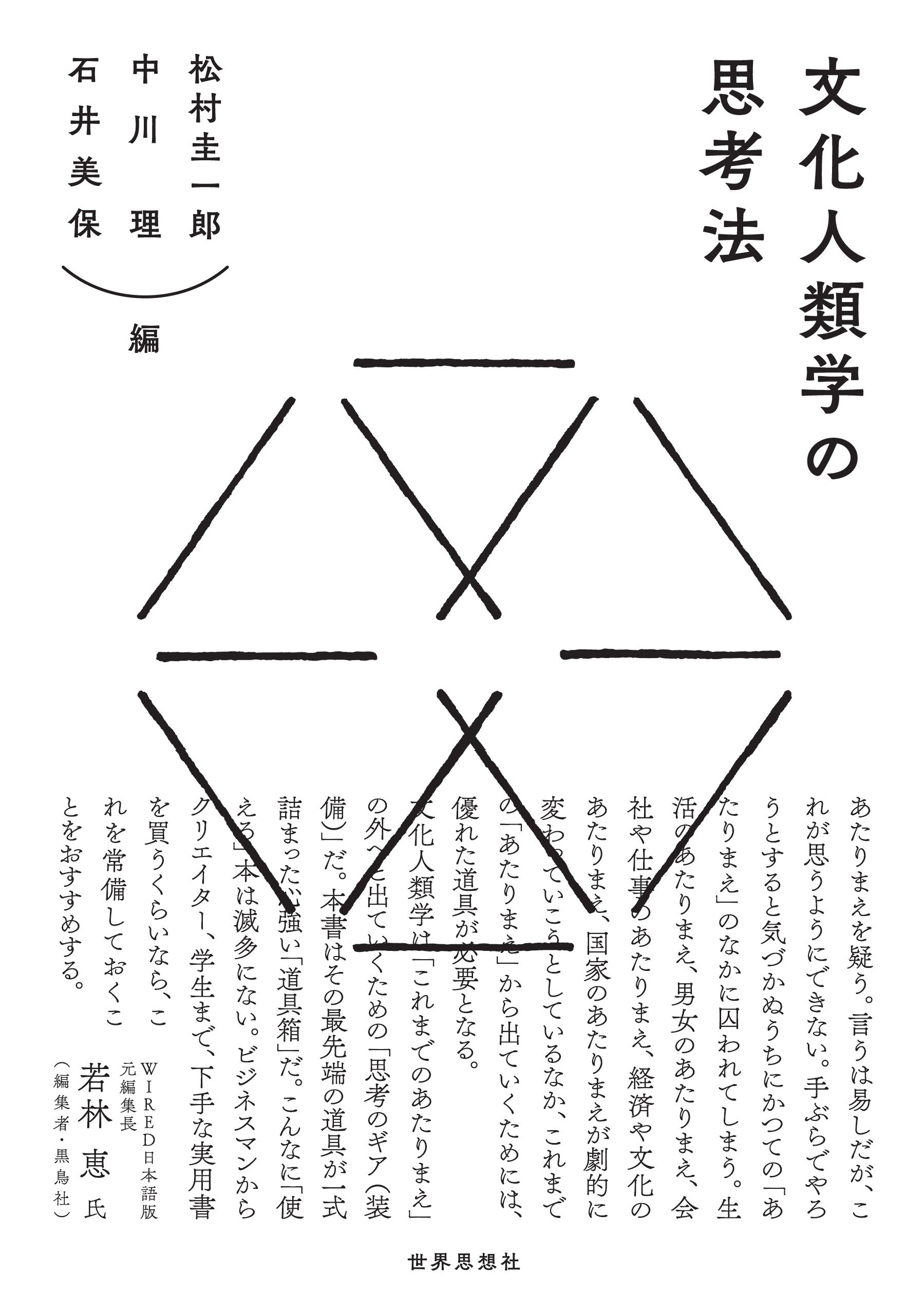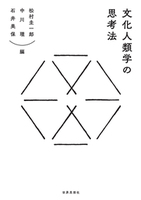- イベント
Anthro-Method/文化人类学的思考法

Anthro-Method: Cultural Anthropology as a Tool for Breaking from Convention
Keiichirō Matsumura, Osamu Nakagawa, Miho Ishii (eds.)
186 mm × 130 mm
224 pages
JPY 1,800
ISBN 9784790717331
Pub date: April 2019
Cultural anthropology is a tool for questioning common sense. This is a useful primer for businesspeople, creators, students… Anyone wanting to trigger innovation. A long-selling classic.
Recommended (Kei Wakabayashi, former editor-in-chief, Wired Japan)
“Question common sense” is easier said than done, and not as easy as it sounds. Try to do so while ill-prepared and you will find yourself trapped in outdated ideas of “common sense” without realizing it—the “common sense” of life, of men and women, of companies and jobs, of economies and cultures, of nations… As each undergoes dramatic change, we need superlative tools for breaking from convention.
Cultural anthropology provides just such tools, and this book is an encouraging toolbox providing the reader with a complete set. Rarely have I found a book so useful. Whether you are a businessperson, creator, or student, I recommend keeping this on hand rather than some poorly written how-to book.
Reviews
“This book has led me to a new direction of possibilities for cultural anthropology, which had been somewhat distant in the midst of diversifying thinking.” ―Weekly Book Review
Table of Contents
Preface: For all thinkers
Introduction: Crafting tools for thinking about the world
Part I: How to capture the world
- Nature and knowledge: How do we grasp an environment?
- Technology and environments: How do we create the world and ourselves?
- Sorcery and science: How are we related to the world?
- Reality and other worlds: Fieldwork in “maybe” domains
Part II: When values and order emerge
- Objects and art: Why do people feel beauty?
- Gifts and liabilities: The intersection of economics, politics, and religion
- Currency and credit: Create exchange mechanisms
- Nations and globalization: Imagining societies without states
- War and peace: Why do we fight?
Part III: Toward new communalities
- Children and adults: Rethinking where we came from and where we’re going
- Relatives and names: What creates connectiveness
- Care and community: Transcending individualism
- Civil society and politics: In a world with cows and crows
Works cited
Recommended reading for those wanting to learn more
Index
Keywords
Art, Nature, Culture, Science, Gift, Actor Network, Arjun Appadurai, Viveiros de Castro, David Graver, Marilyn Strathern, Marshall Sahlins, Bronislaw Malinowski, Marcel Mauss, Bruno Latour, Claud Levi-Strauss, Alfred Gell
Media Coverage
Brain, Weekly Book Review, Weekly Diamond
カテゴリ別お知らせ
- PR
- 重版
- 正誤
- NEWS
- NEWS
- NEWS




